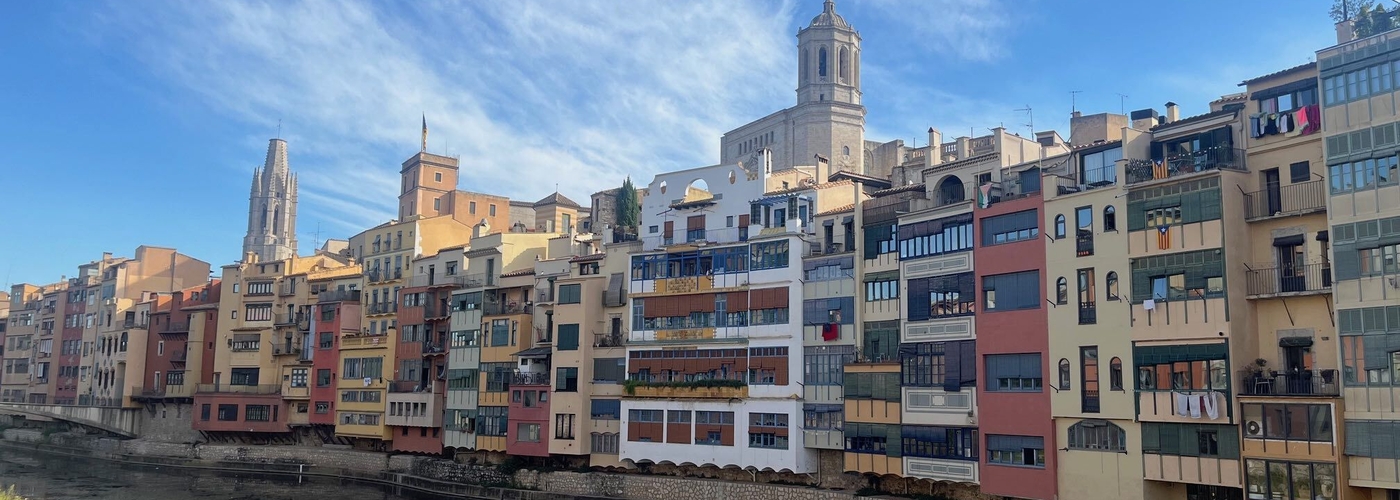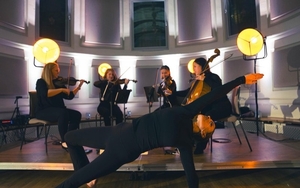Neil Sowerby finds Catalan culture and cuisine the equal of any
IT’S a sausage but not as we know it. The Botifarra Dolça is disconcertingly sweet. Down to the presence of sugar and cinnamon in the pork filling. This prize-winning local speciality is offered with a slice of caramelised apple from a stall in Girona’s traditional El Mercat del Lleó.
Who fancies a popsicle, made from strawberries and rosewater and shaped like Jordi Roca’s nose?
Earlier stop-offs on my three hour city food tour have also tested the limits of my sweet tooth. Coffee I needed after landing in the early hours and threading my way through a medieval warren to my hotel.
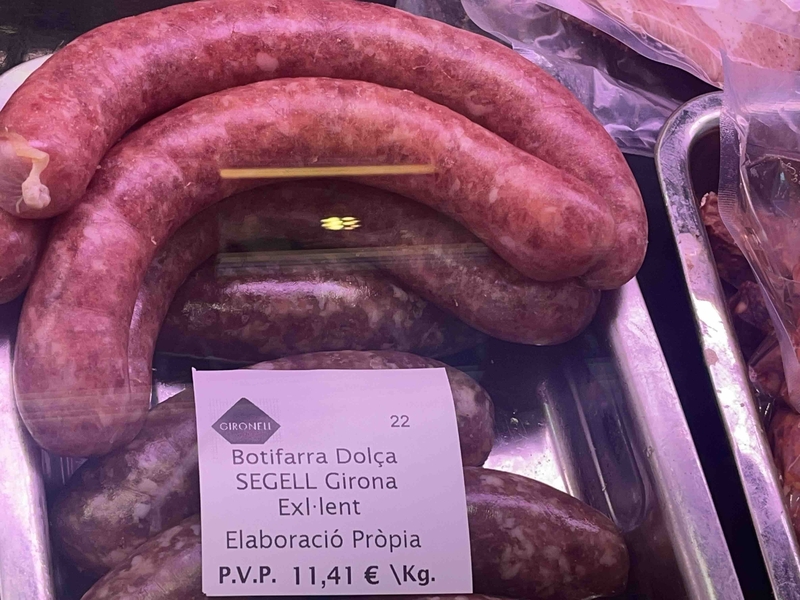
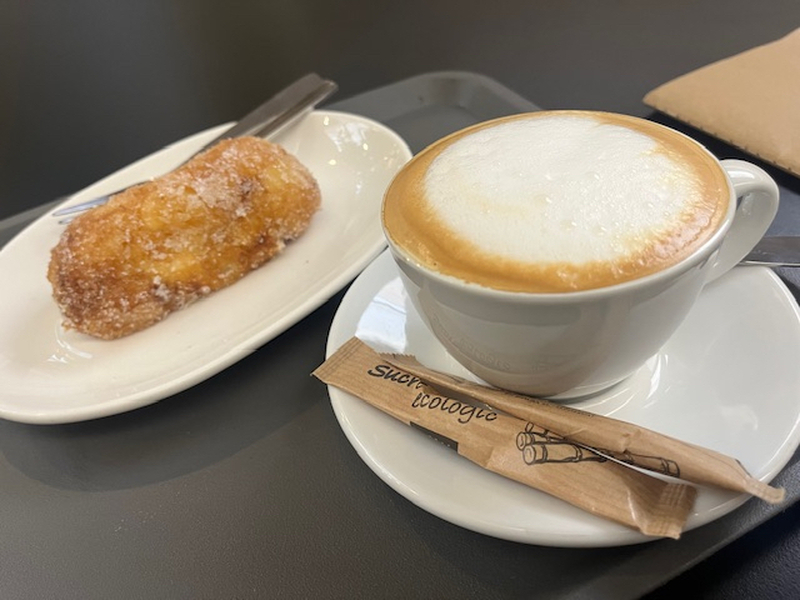
I’m not sure about the sugar rush of an accompanying xuixo at 10am. It’s the Catalan cousin of the churro but more luscious – a deep-fried, sugar-coated, viennoiserie cylinder filled with crema catalana (custard). It dates back to the 1920s and the Casamoner bakery chain is a good place to sample it.
Across the Carrer de Santa Clara there’s further sweet temptation from the Rocambolesc Gelateria. Think an ice cream-led spin-off of Willy Wonka’s Chocolate Factory, harvesting the creativity of a three Michelin star pastry chef.
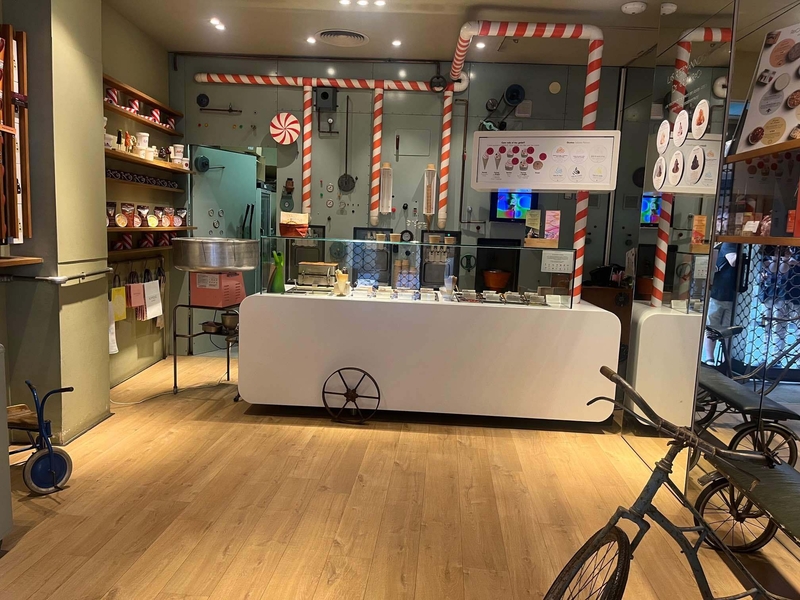
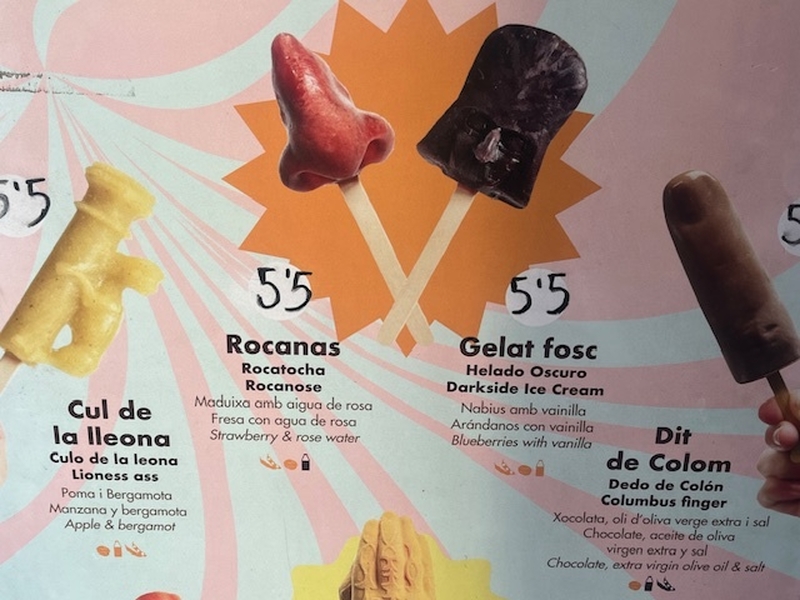
Hugely popular, it launched over a decade ago at the time when founder Joan Roca and his elder brothers Jordi and Josep saw their En Celler San Roca twice named World’s Best Restaurant. Quite a contrast Rocambolesc’s cartoonish backdrop for a riotous assembly of toppings for their soft-serve ices. Despite the day-glo all ingredients are natural. The fun element ramps up with the popsicles, where 3D moulds are used to make fantastical creations. Who fancies a polo (popsicle), made from strawberries and rosewater and shaped like Jordi Roca’s nose?
Round the corner is another casual Roca project – the Rocambolesc Bikineria, serving, not as you might expect, two piece swimming cozzies but ham and cheese toasties – a snack that originated in Fifties Barcelona night club La Sala Bikini and here accommodates truffles and much else. The venture also sells swimsuits online! And you thought Catalan surrealism was confined to the Salvador Dali Museum at Figueres?
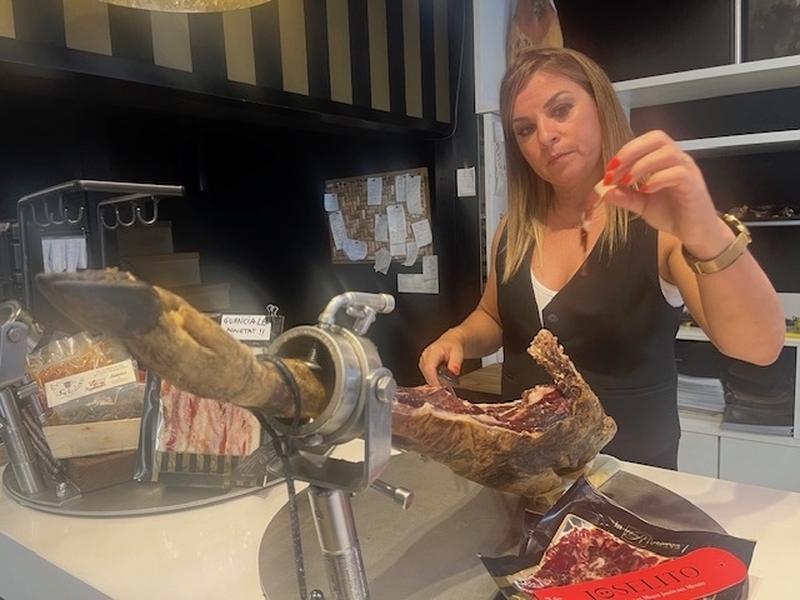
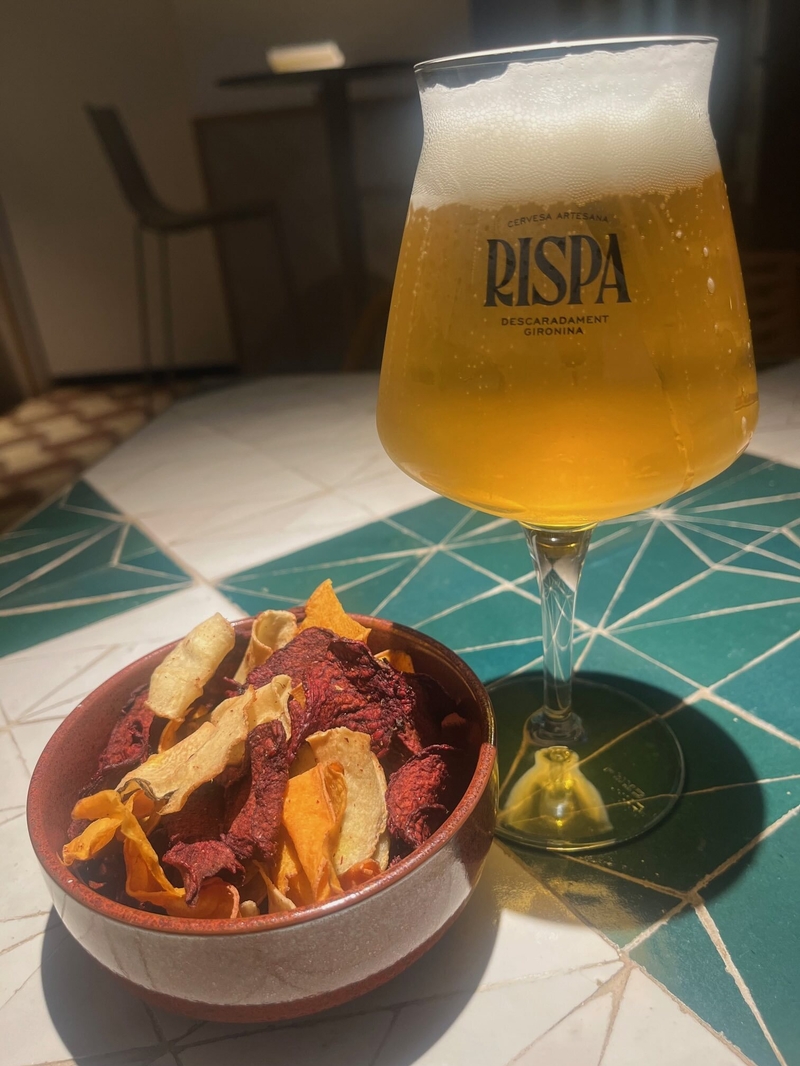
The best hams at La Reserva Espai Gourmet are from southern Spain, notably the legendary Jamon 100% Iberico de Bellota from Jabugo. For a perfect Girona lunch pair it with local Empordà wines at this tiny but knowledgeable deli on Carrer de les Hortes.
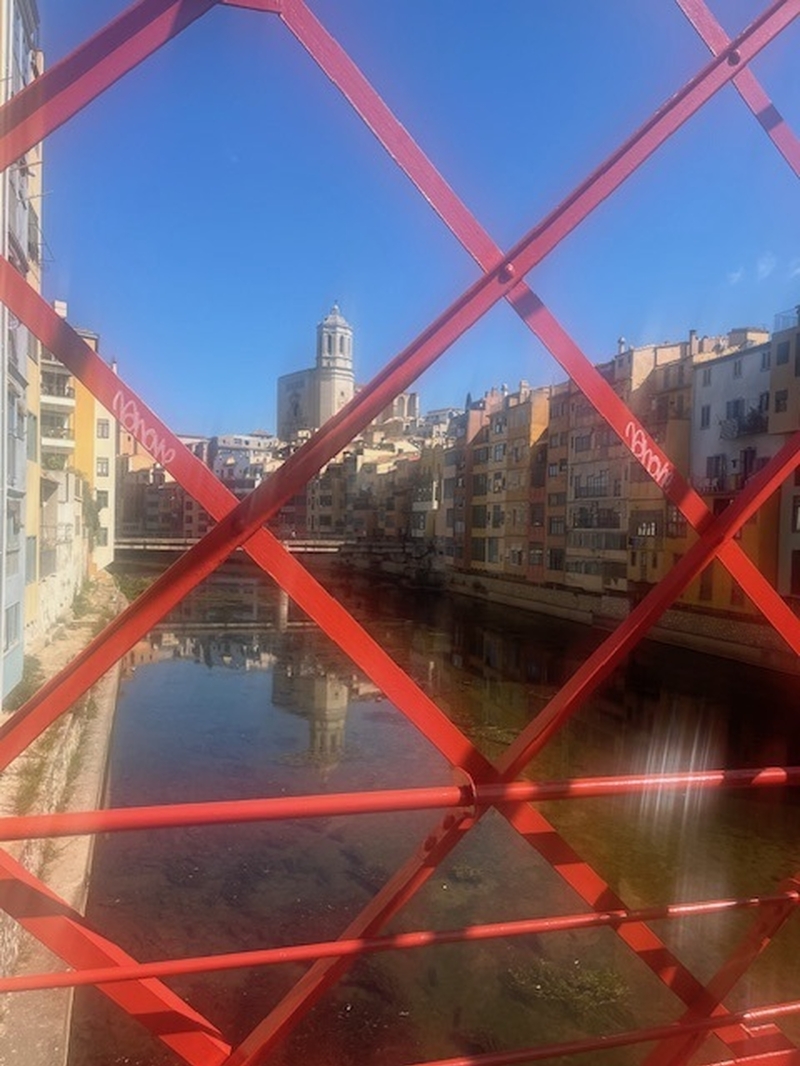
El Call, the Cathedral and an arty lodging
All this culinary action has taken place in the New Town, studded with examples of Catalan modernism, yet Girona’s main draw is its Barrii Vell (Old Town) across the River Onyar. This is just one of the four waterways that combine to make Girona the ‘City of the Four Rivers’ and crossing the Pont de Sant Agusti bridge provides its defining image. The ‘Hanging Houses’ that line the Onyar were enhanced by a team of artists late last century, who decked their facades in a dazzling palette of ochres, oranges and yellows.
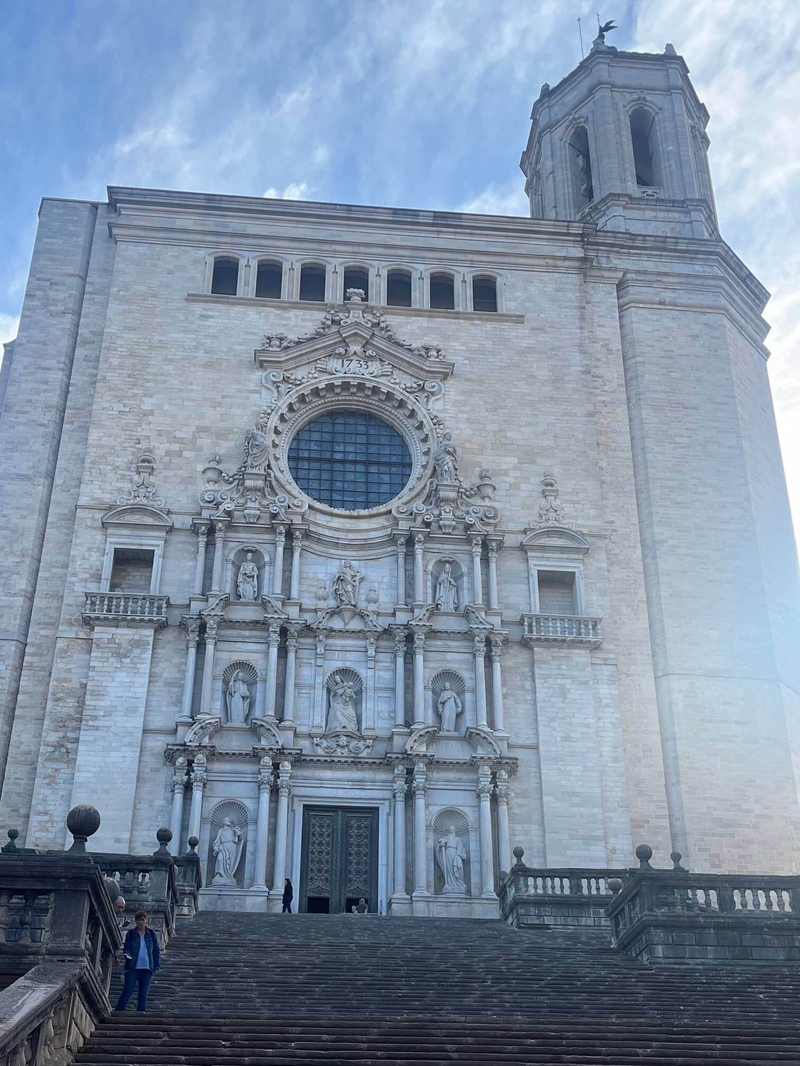
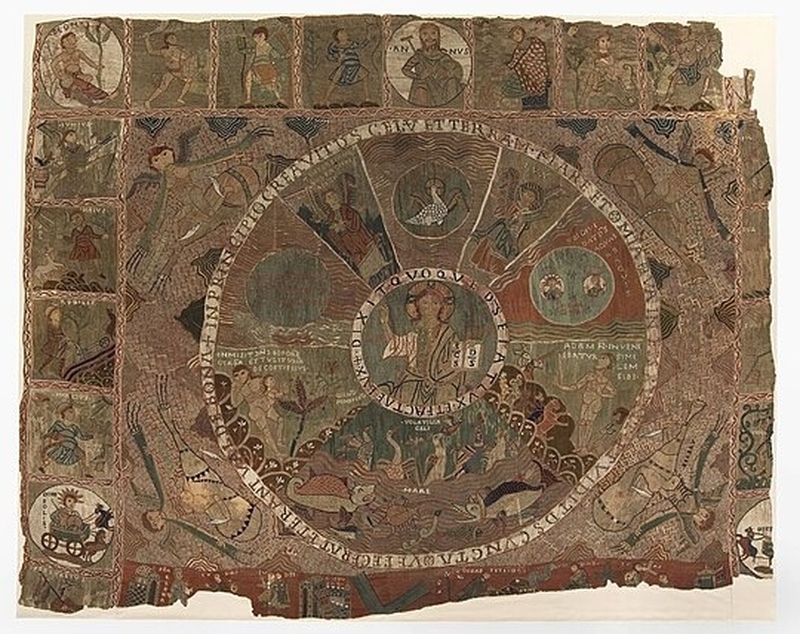
Behind them all streets lead to the Cathedral, a fortress-like Romanesque structure, home to the second widest Gothic nave in the world (behind St Peter’s). Tellingly on one of its great treasures, the 11th century Tapestry of Creation, you’ll find two needlework figures with the word ‘iudie’ attached. The Jewish influence is still omnipresent in the surrounding El Call quarter, whose central axis is Força Street.
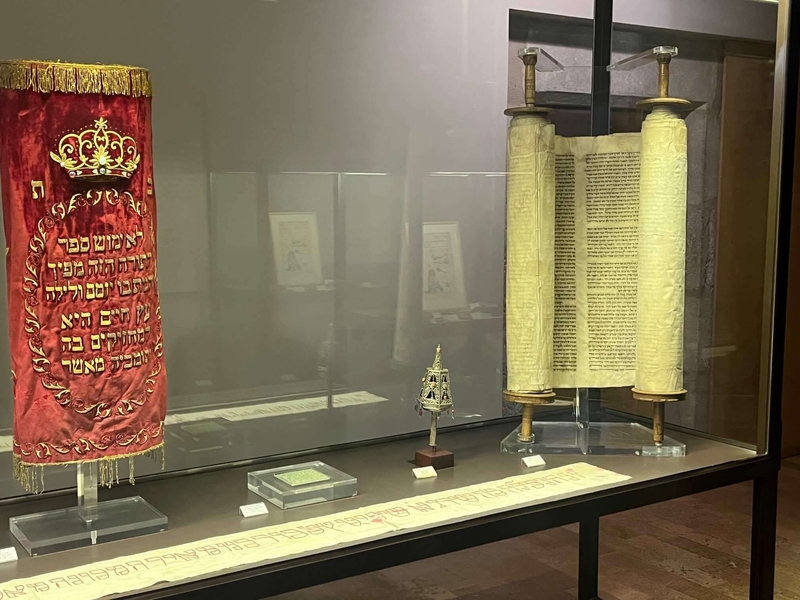
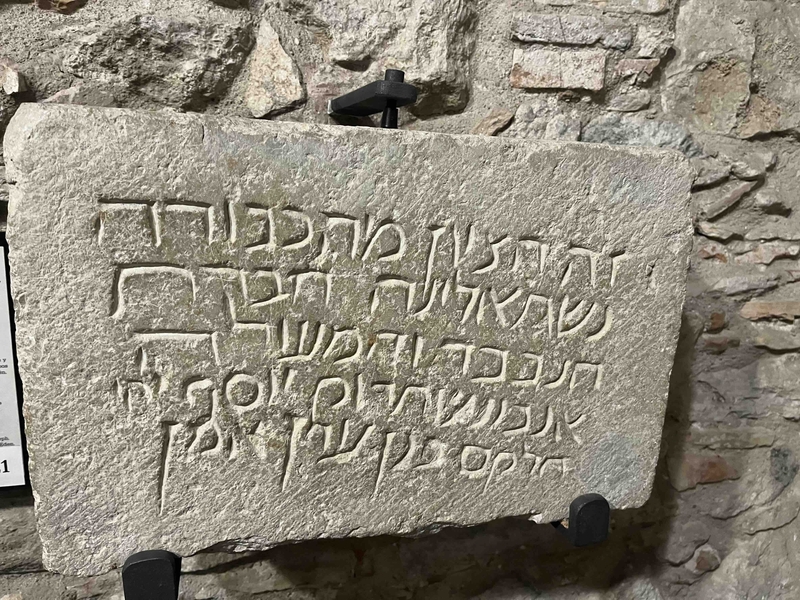
Half way up, on the site of the original synagogue, is the fascinating Museum of Jewish History, whose 11 galleries trace the Hebrew influence from the ninth to the 15th century, when all the Jews who refused to convert were expelled. The tombstones and Kabbalistic texts are hugely evocative and the courtyard is a place for meditation away from the daytripper hordes.
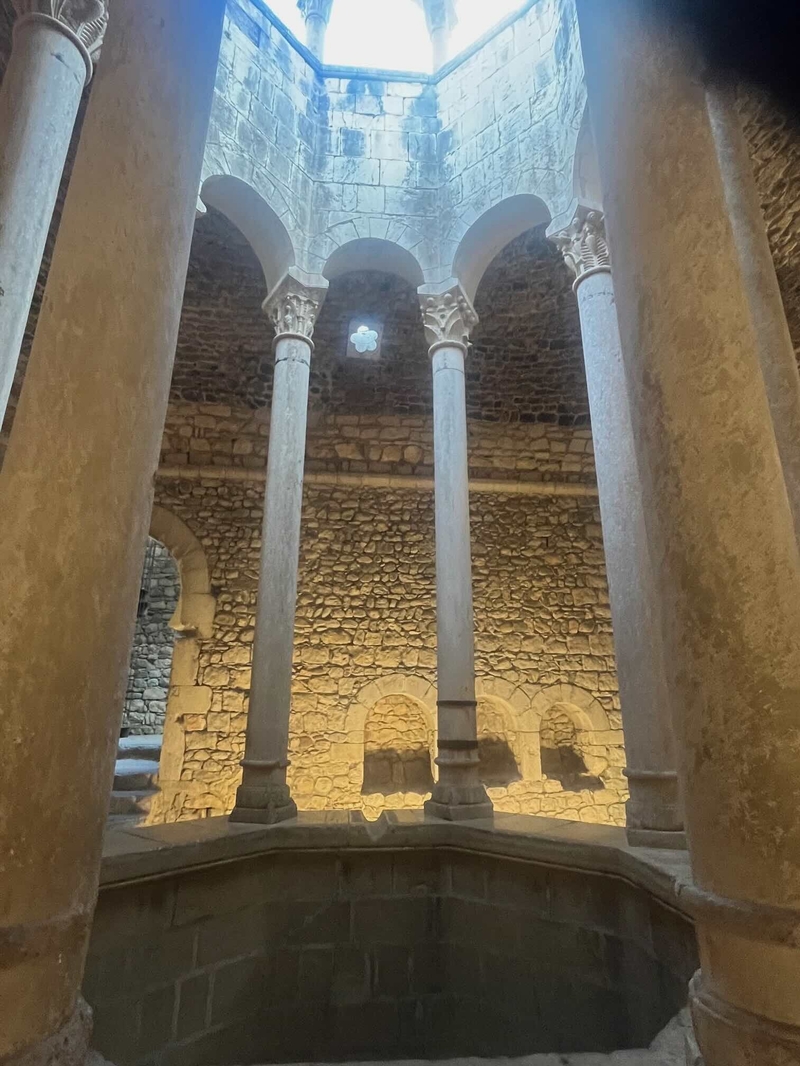
I’d also recommend another remnant of past co-existence, on the other side of the Cathedral. Inside a Capuchin convent the Arab Baths are set in a temple raised on slender columns, topped by an octagonal dome. Nearby you can mount the monumental city walls, some the 14th century originals, others restored after 19th century demolition.
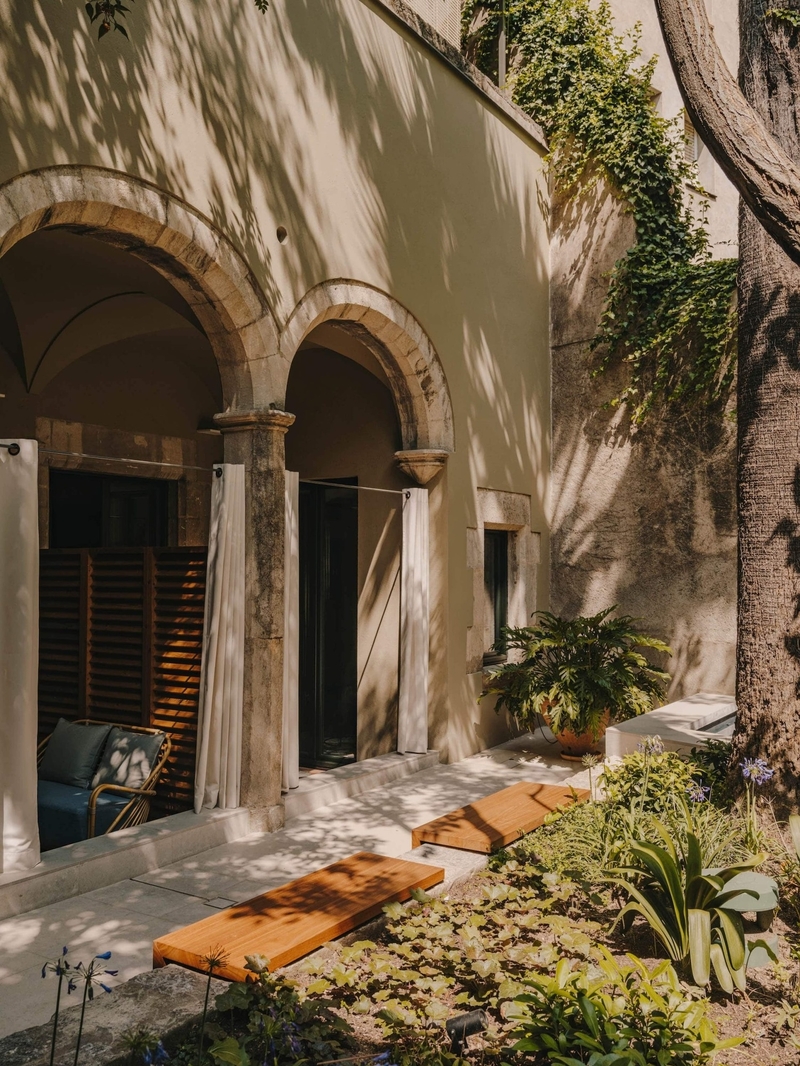
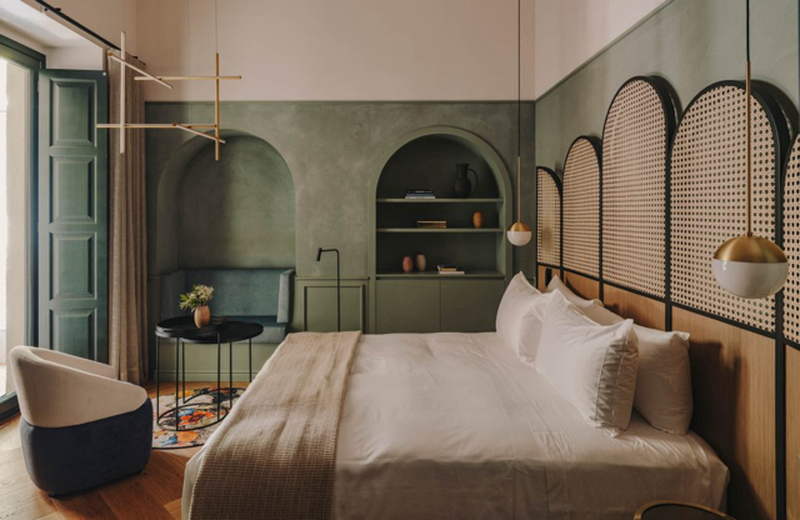
After my panoramic circuit it was good to chill with Girona’s finest craft beer. The Rispa taproom was shut during my early week stay, but the Hotel Palau Fugit opposite, which just happened to be my base, stocked their floral American IPA.
The Palau is a boutique conversion of an 18th century Baroque palace, employing a cadre of the region’s finest artists and designers. The rooms are divided into El Palauet, mixing modernism and history, and the more contemporary El Pavello. La Cova d’Aigua is its spa and bath complex within the original stone walls. It also boasts four dining options, including the attractive rooftop bar, El Terrat, specialising in vermut and tapas.
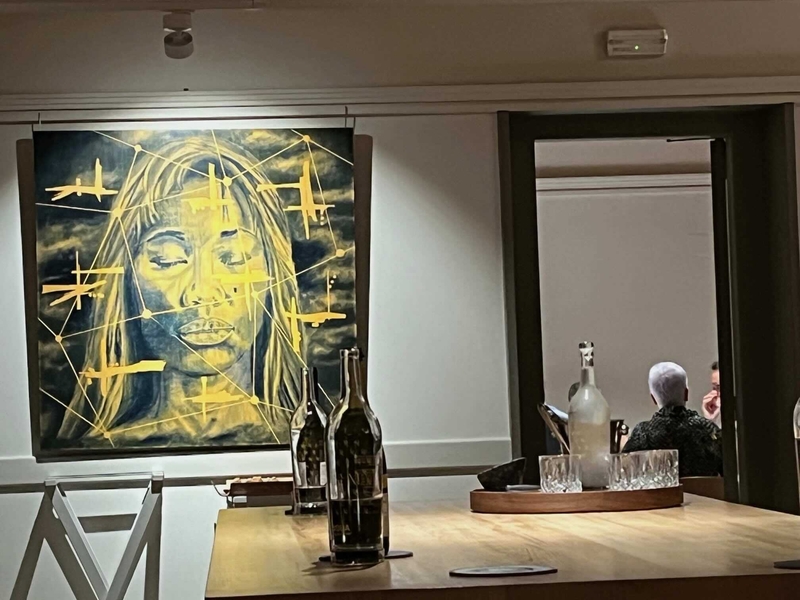
And, of course, the hotel is an ideal base for exploring Girona’s multifarious gastronomic opportunities. Few of us are able to afford En Celler San Roca (and you have to book months in advance), but there are other aspirants. I’d recommend Divinum, which definitely has a Michelin star in its sights. A certain formality in the service doesn’t detract from the delights of its playful tasting menu, rooted in the region’s wonderful produce.
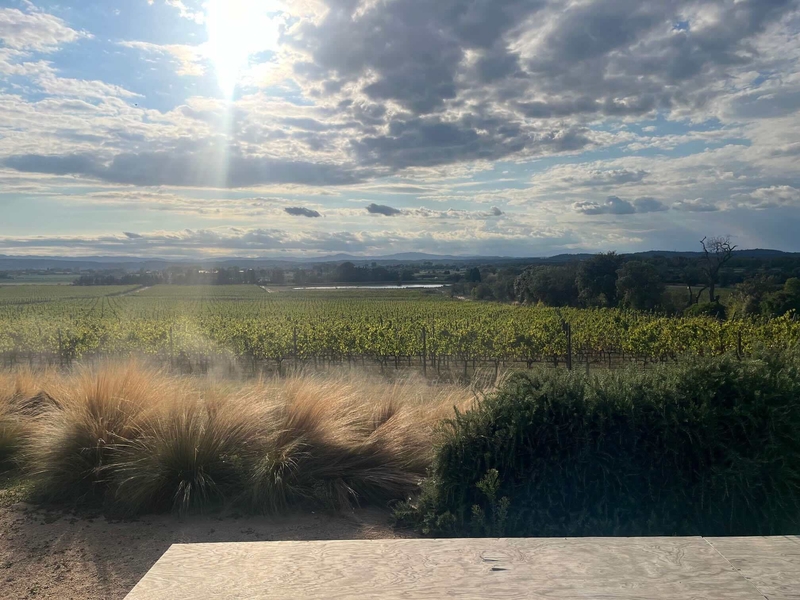
Explore a hinterland rich in wine, rice, apples and olive oil
A 45 minute drive from Girona city, slap in the middle of those agricultural riches, lies the glorious medieval village of Pals. I stayed on the outskirts in the appropriately named Es Portal Hotel Gastronomic, a conversion of a 16th century farmhouse, featuring much exposed stonework, I didn’t eat there but in the workaday stretch of town in a restaurant that is anything but. Vicus offers an inspiring introduction to local produce. In the dining room there are nods to the time when it was a cafe attached to the family guesthouse. For three decades it was shuttered up until 2010 when Gerard Geli (once a sommelier at El Cellar) and his wife Elisabet returned to their roots, along with chef Damià Rafecas, to restore the place as a showcase for new Catalan cuisine.
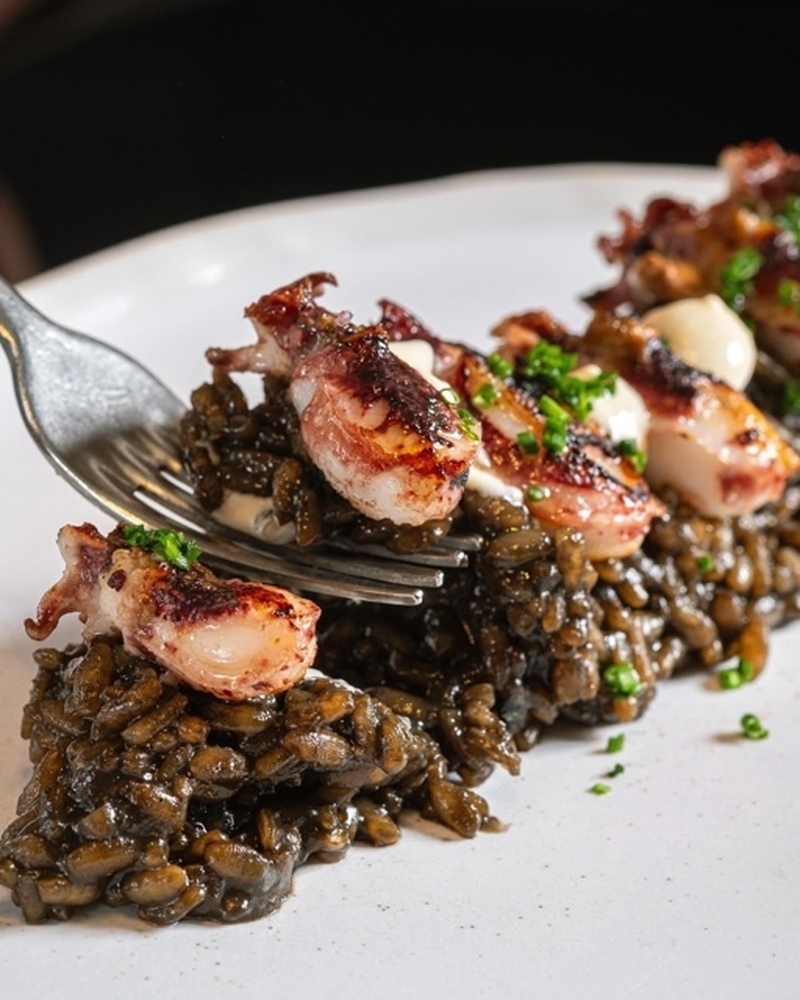
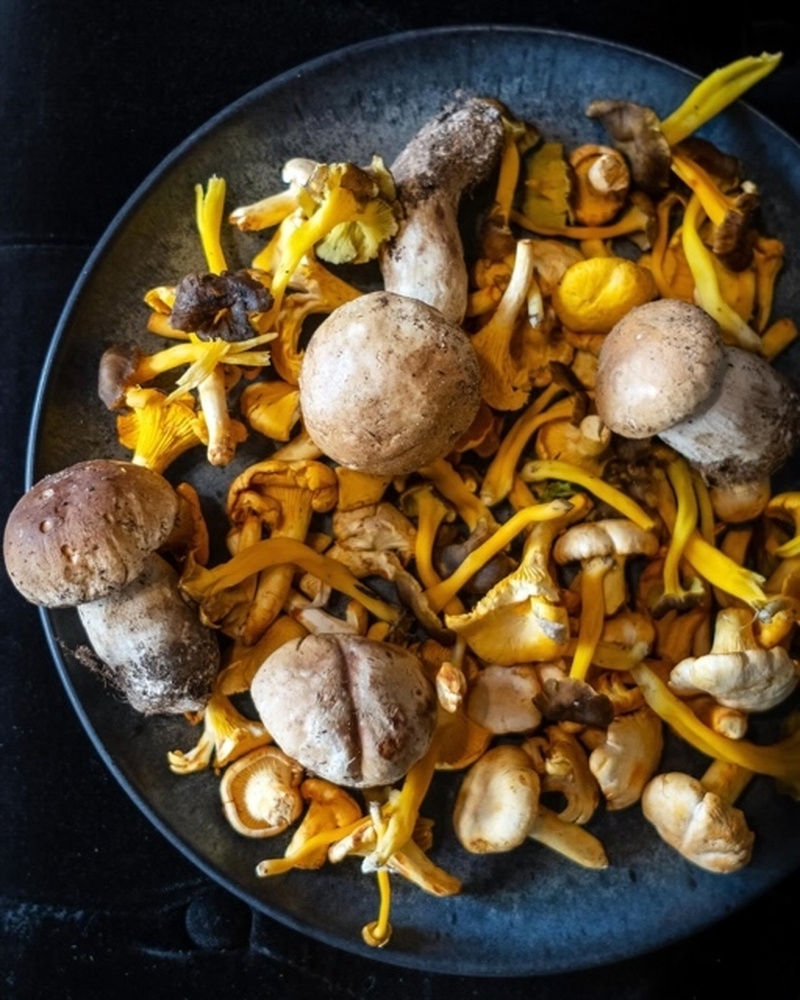
They introduced me, via a dish of black rice, cuttlefish and pear alioli, to the paella-perfect artisan rices of L’Estany de Pals. You can buy bags of the rare Bahia variety from the bakery across the road (as I did). The vivid green rice fields spread out all around Pals, only shadow the threat of dwindling rainfall. In-season chanterelles featured at Vicus, as did anchovy appetisers using the salted Anxoves de l’Escala, Catalunya’s finest (brought some of those home too), but the stand-stand-out dish was smoked eel with aubergine and black garlic.
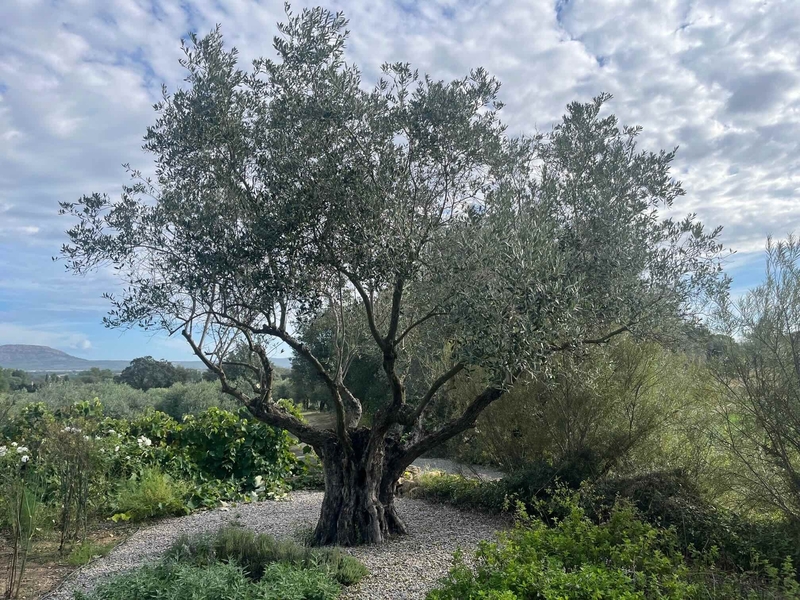
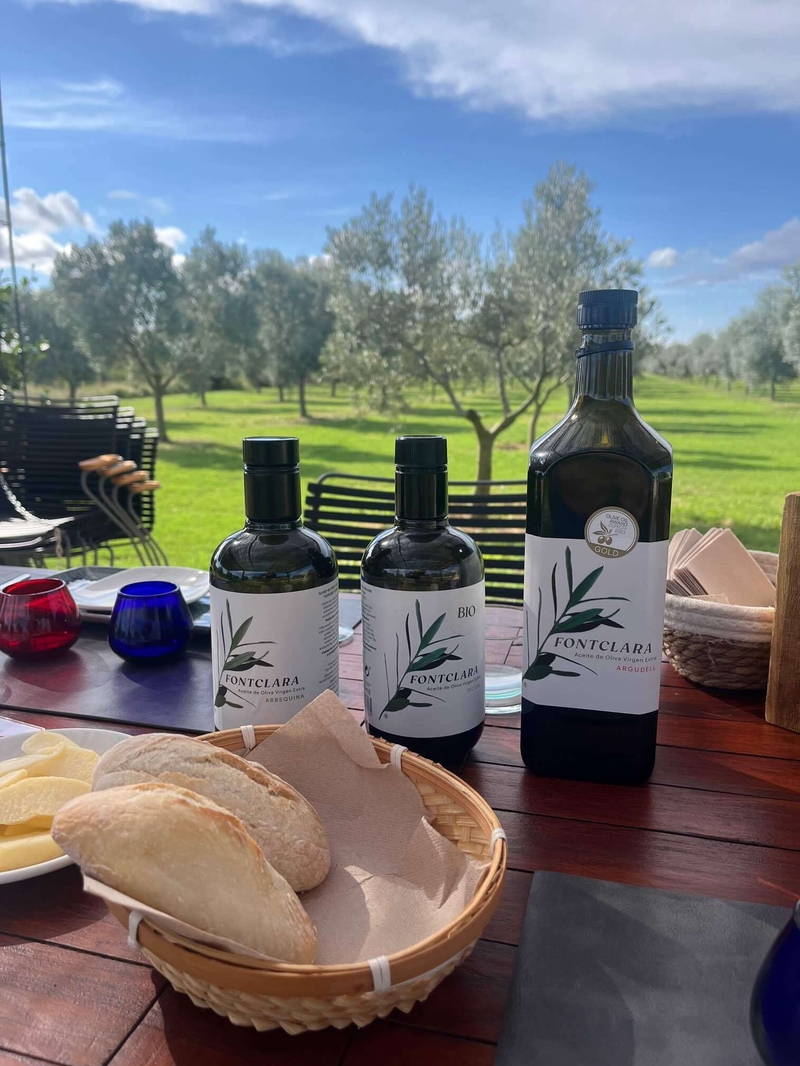
On the table throughout, as at Divinum, was Fontclara extra-virgin olive oil. Yes, you guessed it, I bought some of their native-Catalan Argudell oil after visiting Fontclara’s tasting room in the Empordà wine region. The olive groves here, some centuries-old, some newly planted, are the dream project of Swiss entrepreneur Roland Zanotelli. The Argudell and the fruitier Arbequina varieties are with their contrasting flavours quite sensational.
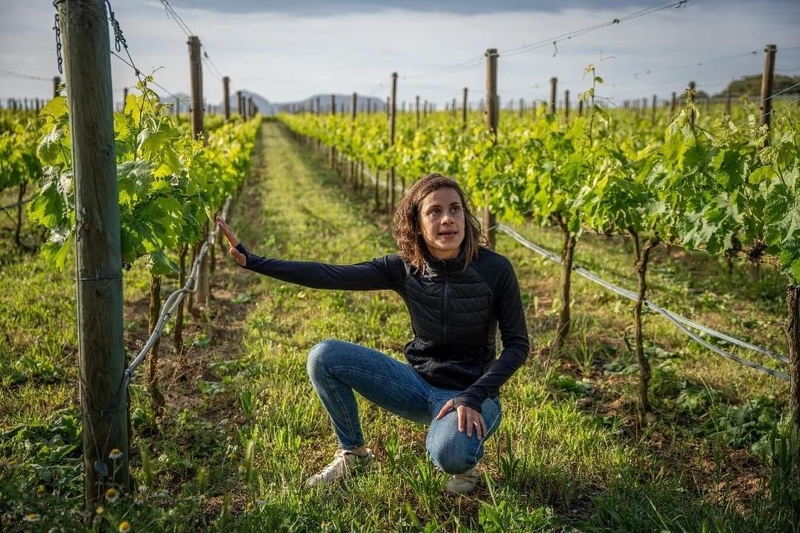
Fontclara offers two tasting tours among the 12,500 organically farmed olive trees. The basic costs 30 euros, but I’d recommend the two hour 45 euro visit with add-ons of cheese, charcuterie and a glass of local wine.
Empordà’s wines were new to me but this is definitely a region to watch with its own styles. At the Mas Geli (whose organic wines are available in the UK) I was particularly impressed by whites made unusually from Carignan and Grenache varietals. The 18 hectare Mas Geli vineyards were created from a former golf course a decade ago by winemaker Anna Pérez Cansell and her brother. The hilltop winery offers a variety of activities including sunset yoga.
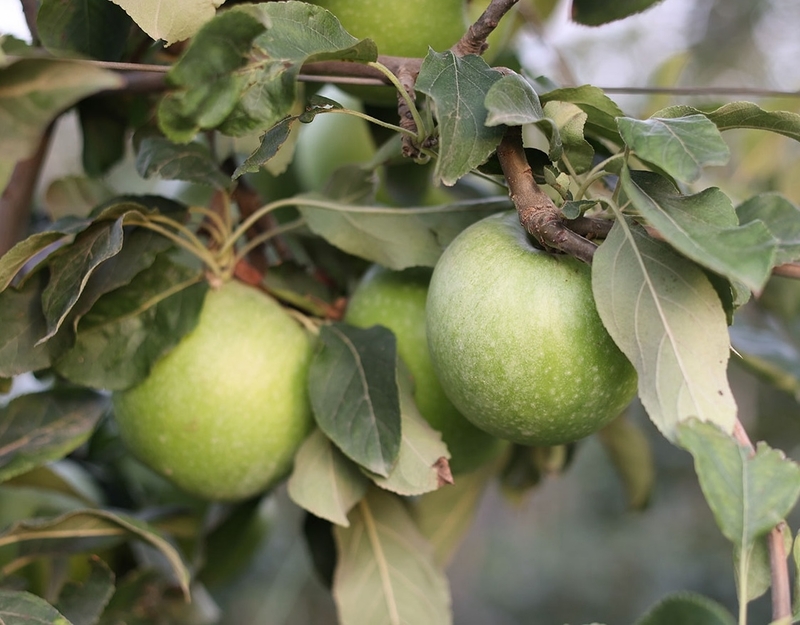
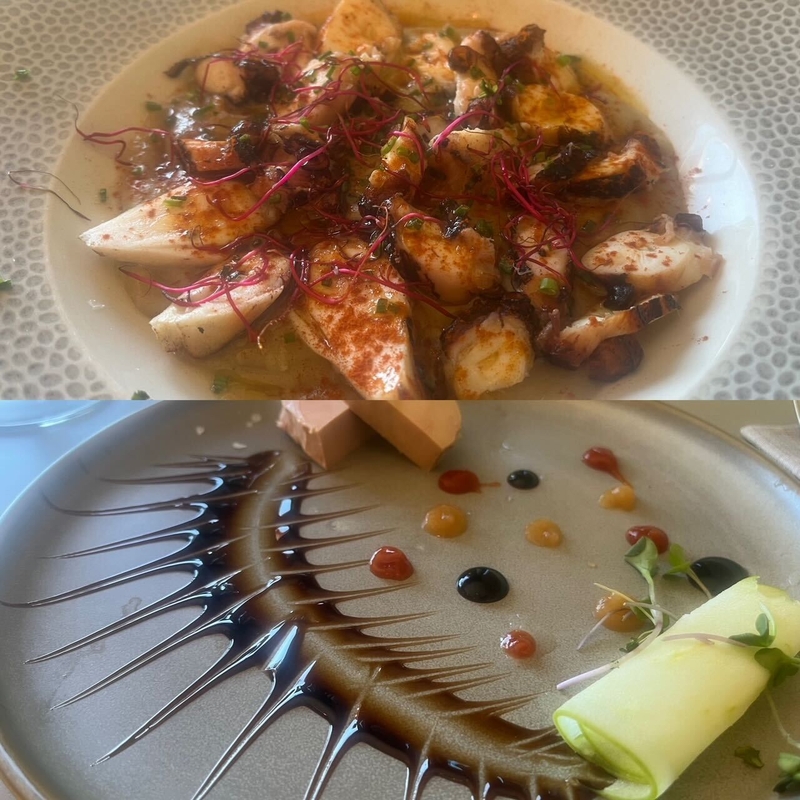
In this region apples compete for attention with grapes and olives. The perfect introduction might be the family-run orchards around Mooma, a cider house and restaurant three miles form Mas Geli. It’s home to the first Catalan cider and its rustic dining room serves some surprisingly innovative food. The cider was a fine accompaniment to foie gras with golden apple compote, tomato jam and balsamic, and Llançà octopus with a lush truffle parmentier.
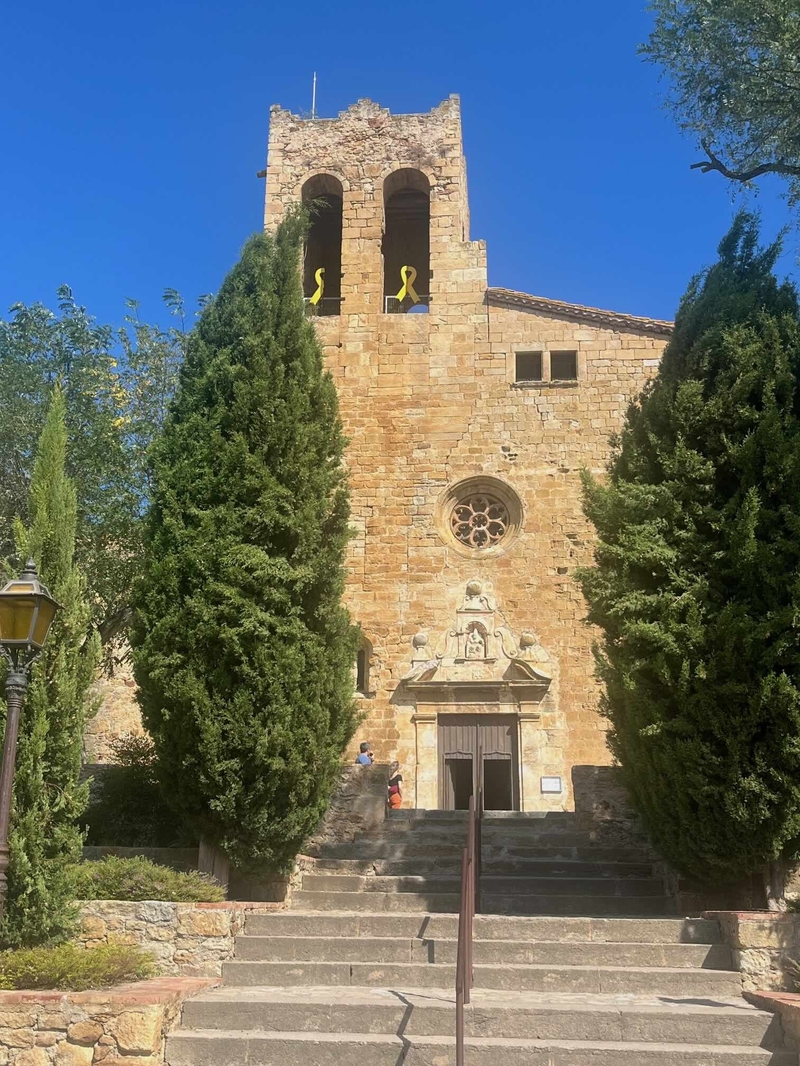
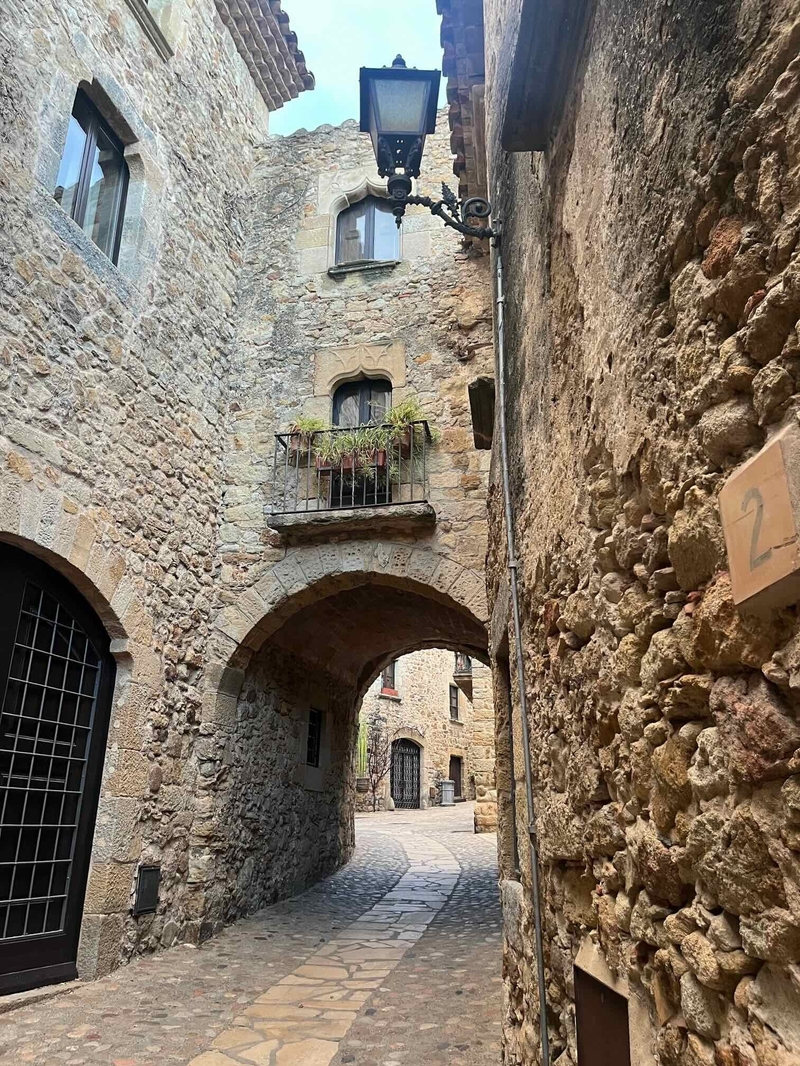
The old town of Pals itself dates back to the ninth century. Amazingly, a remnant of that time is still in situ – its hilltop church. The Església de Sant Pere.has been refashioned over the centuries, mixing styles from Gothic to the Baroque. Alongside is the Torre de les Hores (Hours Tower), all that remains of a 13th century castle. The views across to the Montgri mountain range are splendid and the streets are a delight to wander around, especially with a tub of the local Can Malirach ice cream in your hand. Well, maybe not the anchovy flavour.
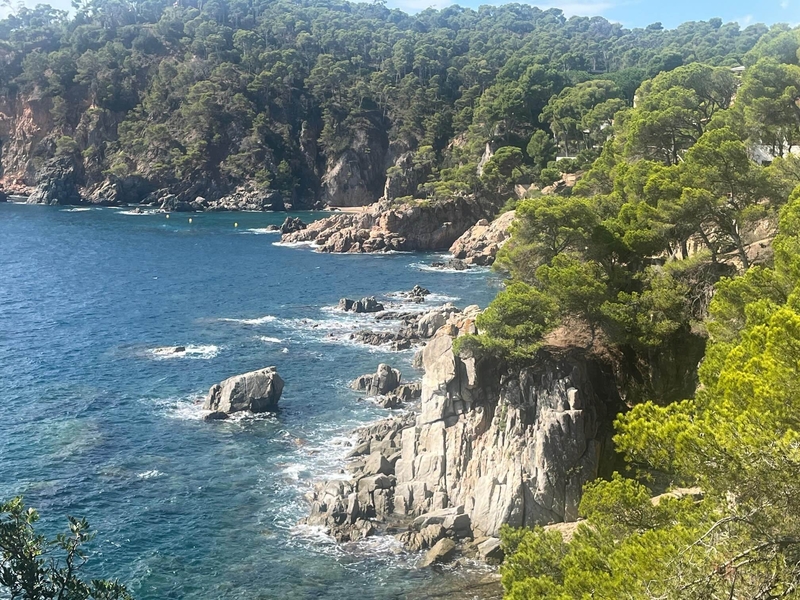
Costa Brava – coves, magical garden and fish heaven
There are anchovies aplenty, and every sea creature imaginable, on the stalls at the Port of Palamós. Next door to the auction hall and the Espai de Peix centre devoted to the promulgation of seafood knowledge you’ll find the quayside Fishing Museum. The 5 euros ticket opens up a vanished world of a fishing community perilously committed to this ‘Costa Brava’. It was back in 1908 that poet/journalist Ferran Agulló the name, meaning ‘Wild Coast’.
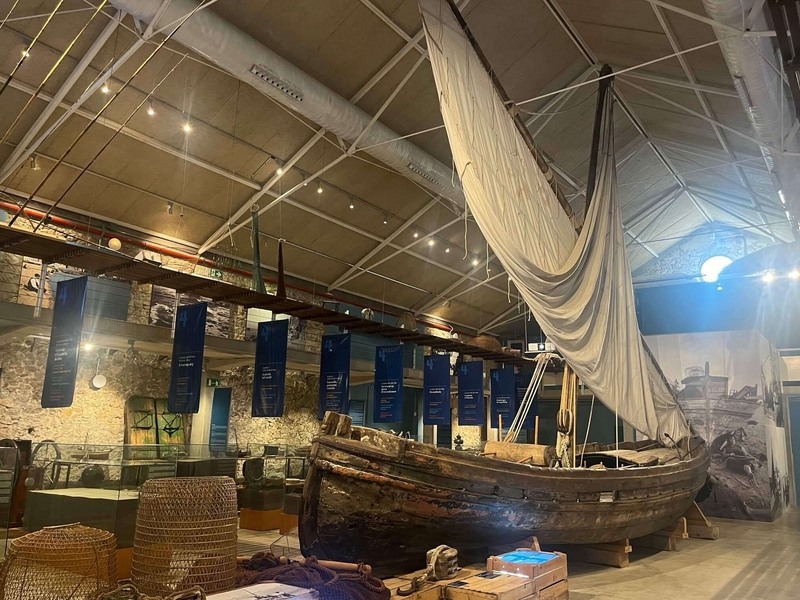
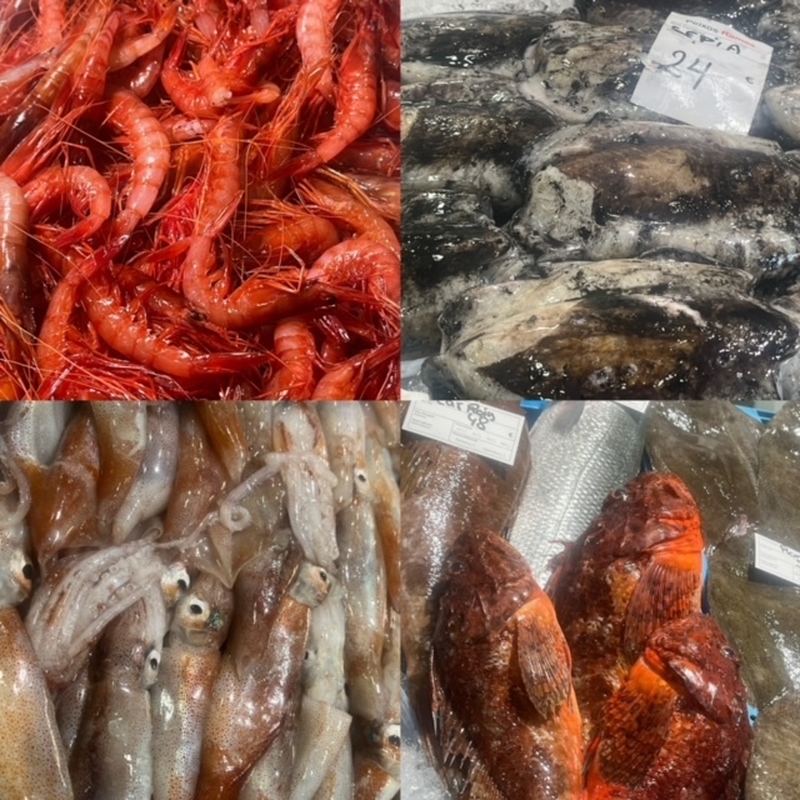
Two decades later a Russian colonel and his English wife set out to tame a stretch of it. Result: Cap Roig Gardens a must-visit heritage attraction. This 20-hectare site boasts around 800 botanical species (the cacti are particularly imopressive) from across the globe and 20 sculptures, plus a medieval style castle, whose terrace hosts a glitzy international music festival every summer. Everyone from Bob Dylan and Elton John to Peppa Pig has graced it (the latter as part of a kids’ mini-festival).
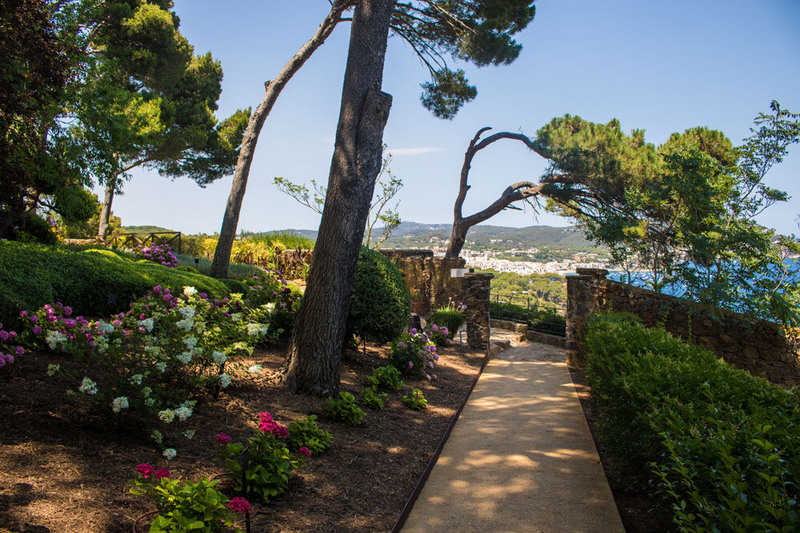
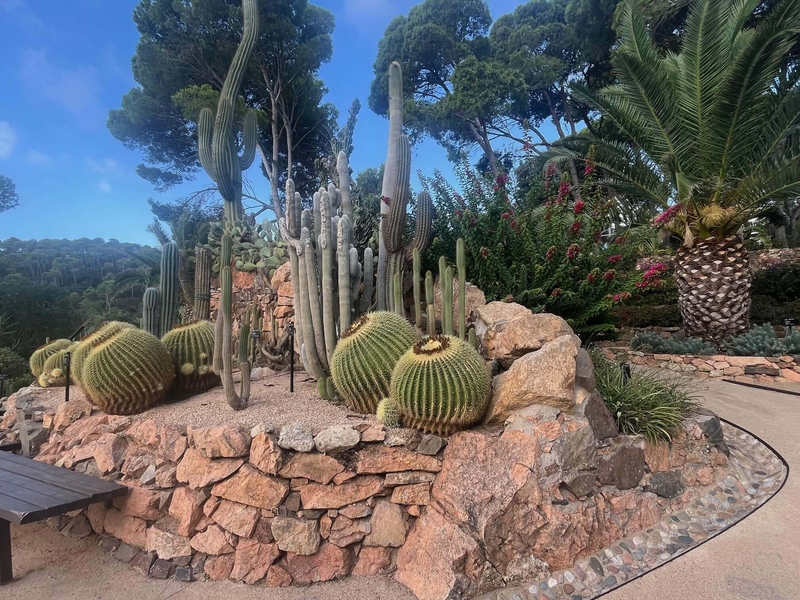
Cap Roig’s creators Nicolai Woevodsky and English aristocrat Dorothy Webster built but never lived in the castle. In 1969 they transferred gardens and castle to a welfare project called ‘La Cauxa’, which maintains it all beautifully. The couple are buried privately with their pets, Nero the dog and Bonzo the cat, on a promontory that juts out into the Med.
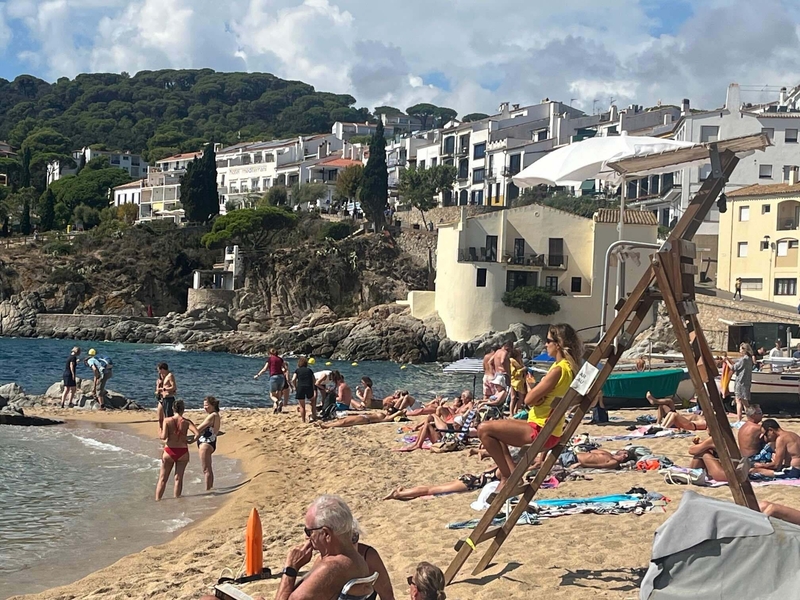
When this coastline was more remote it was a haunt of smugglers and the footpath called the Camí de Ronda was built to help the Carabineros smash the trade. These days, as part of Spain’s GR 92 long distance route, it’s a perfect way to connect between some of the Costa Brava’s more charming resorts. The stand-out Calella de Palafrugell is an easy 3km saunter from Cap Roig. Set in a glorious bay, it feels low key, laid-back and family-friendly, home to 40 plus eating places rather than the stag do karaoke joints that pollute other seafronts further south.
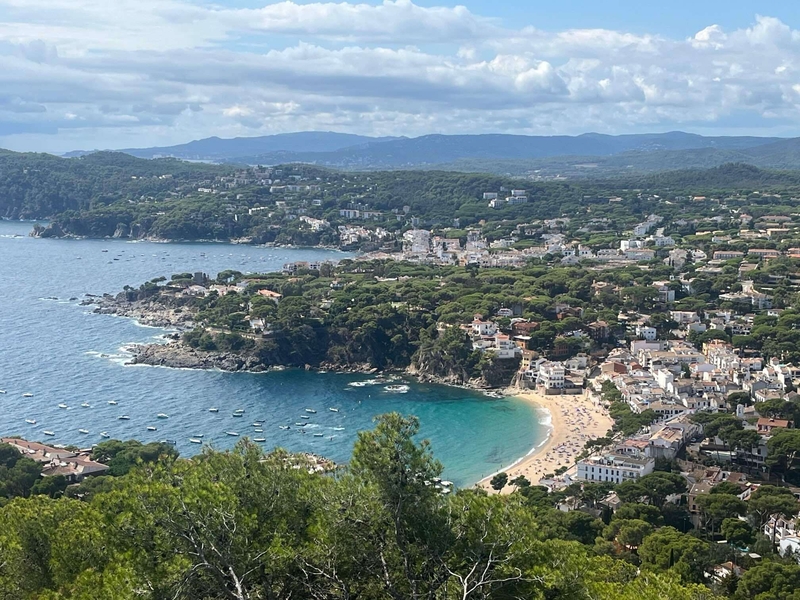
I pushed on past cute little coves to affluent Llafranc, where I lunched next to its clifftop lighthouse with its lofty view over the yacht harbour. On the breezy terrace with a glass of Empordà white to hand it had to be seafood at the Hotel Restaurant El Far. So bring on a dozen hefty razor clams, followed by the ultimate Catalan fish stew, Suquet, which makes the French bouillabaisse feel like a thin broth.
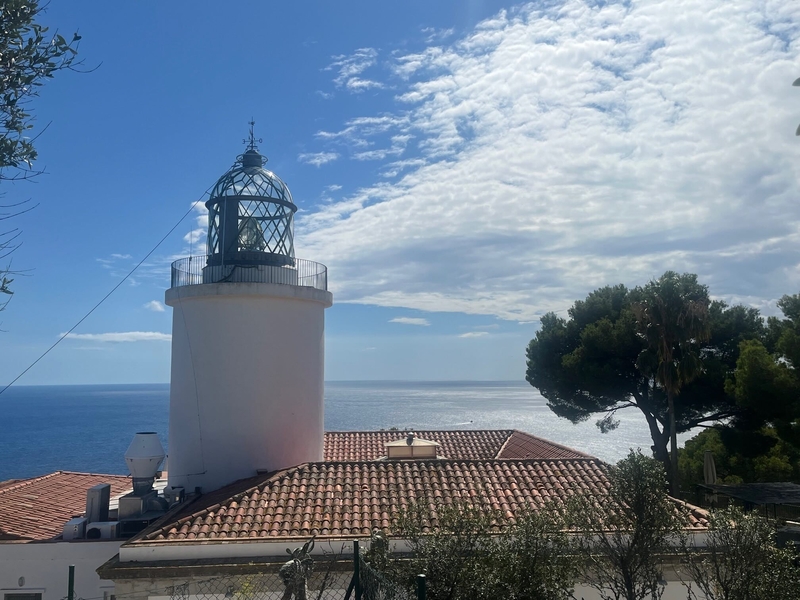
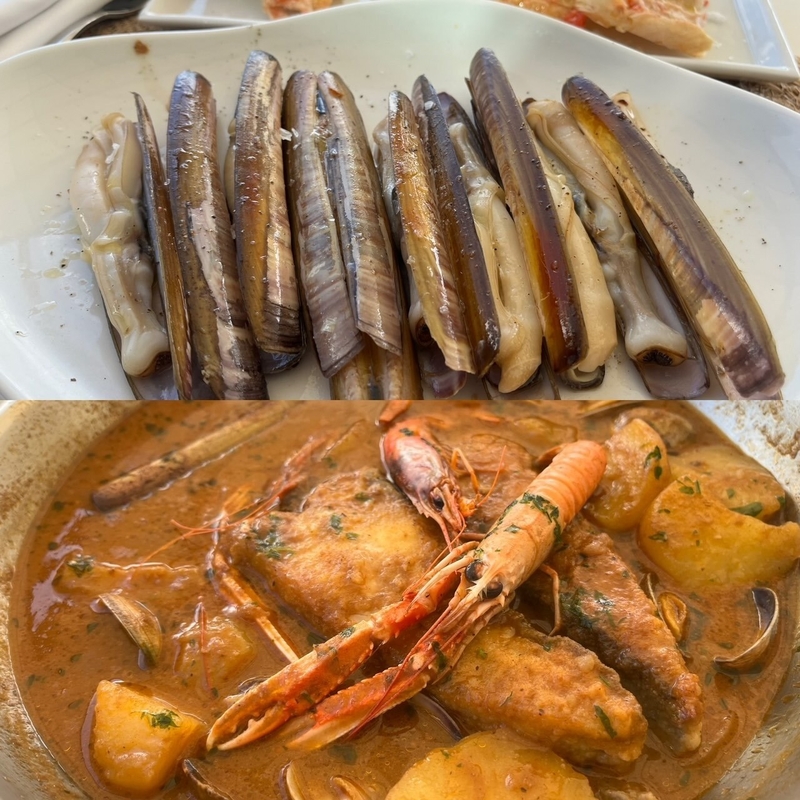
The Basque Country may have captured and held the bragging rights to ‘Best Iberian Cuisine’, but Girona’s gastronomic plenty makes it a true rival contender. Testimony to my own commitment – my hold baggage packed with Empordà wine, Fontclara oil, L’Estany de Pals rice and jars of Anxoves de l’Escala. Alas, the Botifarra Dolça didn’t make the cut.
Fact file
Neil Sowerby was hosted by the Costa Brava and the Girona Pyrenees Tourist Board.
He stayed at the Hotel Palau Fugit, Carrer Bonaventura Carreras I Peralta, 4, 17004 Girona and at Es Portal Hotel Gastronomic, Crta. de Pals a Torroella de Montgrí, 17 17256 Pals, Costa Brava.
A Girona Food Tasting and Market Tour costs 79 euros for and adult, under-12s 59 euros.
Neil flew with easyJet from Manchester to Girona Airport, which is 18km from the city centre and 40km from the Costa Brava coastline.





